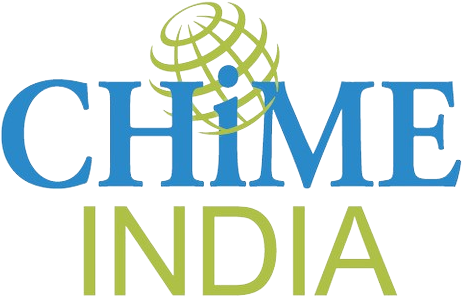Written by : Arun Ramalingam
August 27, 2023

Health is by far one of the most important aspects of any individual's life, it determines one's way of living and dictates their actions and decision-making. In this regard, health care has constantly evolved to support the needs of society. Healthcare has come a long way from its World War 2 focus where preventive healthcare was the name of the game and the biggest threat was contagious and workplace accidents. Today healthcare has a far different approach and the end patient demands more. Healthcare has evolved from preventing ailments to predicting them and curing them before they even happen. Gone are the days when patients followed an authoritarian healthcare approach, now health systems need to find ways to connect with the empowered patient, one who has more control over their health information. These patients are empowered by technology and the vast information power it brings. The patient and healthcare relationship is no longer asymmetric and the commercialization of healthcare is a sign that the roles in healthcare have changed.
The consumerization of healthcare didn't happen overnight. The rise of technology, on-demand services, and the Internet of Things (IoT) are some of the factors that pushed healthcare to be what it is today. In an article about the future of healthcare McKinsey & Co. points out various drivers that created the the empowered patient.
Widend access to health information: The internet has made medical information widely accessible, reducing the once asymmetric relationship between patient and practitioner
The expansion of Telehealth: COVID-19 and an unprecedented impact on the healthcare space. The inability to meet in person pushed the healthcare space to innovate and further invest in telehealth services that have changed the idea of healthcare being once a traditional institution to a more commercialized service. This change has led the patient to expect similar service-based programs
High deductible insurance plans: The rise of different insurance plans and high deductible plans has made the healthcare experience more of a "shopping experience" where patients look for the best deals and options, further consumerizing healthcare.
The rise of retail healthcare: The rise of walk-in pharmacies and big box healthcare facilities from places like Walmart and Best Buy have changed how healthcare is viewed.
While there are more factors that have led to the consumerization of health, these 4 factors point to the shifting view of healthcare and its subsequent impact on the patient who no longer is seen as a patient but rather a consumer.
With the consumerization of healthcare, patients demand more - better quality, better convenience, and lower prices. The COVID-19 pandemic showed the potential of such a model through the idea of telehealth. With the ability to meet with patients over digital calls, health systems uncovered the untapped potential patient engagement and the important role it can play in providing care. Concepts such as the Digital Front Door explore and allow health systems to engage patients via user-friendly apps and virtual care platforms fully integrated with in-person services. This omnichannel approach provides consumers with 24/7 self-service access to healthcare from their smartphones or devices. As virtual care removes geographical and scheduling constraints on care delivery, patients increasingly view healthcare as an on-demand consumer service rather than a traditional health-related matter. The speed at which society moves and evolves has pushed the healthcare space to commercialize its service to empowered patients who value time and convenience.
Patient empowerment cuts both ways. Health apps and telehealth services prime patients to be stewards of their health, yet online symptom checkers can lead to flawed self-diagnoses. Telehealth offers on-demand access to doctors, but convenience may discourage preventive care. Price transparency promotes shopping for value, however, over-utilization could increase system costs. Control over data enables personalized care, though third-party privacy risks loom. Consumer-focused care boosts experience, but healthcare is not just another retail commodity. Informed patients can partner in shared decision-making, yet too much autonomy yields poor self-prescribed treatments.
This new power balance is a work in progress. Patients relish being healthcare consumers, but appropriately guiding their preferences is imperative. Bridging access and convenience with quality and safety remains the challenge in this brave new world. The empowered patient holds tremendous potential to drive positive disruption of the status quo. However unconstrained patient control risks unintended healthcare consequences. Harnessing the upside of empowerment while averting the downside will ultimately determine whether consumer-driven care cures or consumes the healthcare system.
The consumerization of healthcare is more than just a passing trend and healthcare practitioners must adopt and adapt to this - it represents the future model of healthcare delivery. Momentum continues building behind a movement transforming passive patients into engaged, empowered consumers. Demographic shifts, social media influence, generational expectations, and technological innovation will further accelerate consumer-centered care. To remain relevant, all healthcare organizations must ultimately adapt to this new consumer mindset and recognize its dominance in shaping the patient experience.
The future promises continued healthcare disruption by empowered consumers. Organizations that embrace this new paradigm will gain an advantage. Those clinging to traditional paternalistic models of healthcare delivery and practices will face growing irrelevance in the vast market. Consumerization marks a new chapter for healthcare '“ one that is teeming with opportunities and possibilities to serve a new era of consumers. By harnessing and adopting the consumeristic mode health systems can reach new patients that they would have never done before. This consumer awakening represents a transformed vision of healthcare's future.
Consumerism will force providers to think differently about market dynamics, branding, customer service, and competitive differentiators beyond clinical excellence. Virtual care, price transparency, retail options, and decision-making autonomy will become the norm. This will create new opportunities to meet evolving consumer needs and preferences with technology-enabled models. But it also poses risks if healthcare consumerism is not properly guided by medical professionals and a heavier emphasis on outcomes.
The College of Healthcare Information Management Executives (CHIME) is an executive organization dedicated to serving senior digital health leaders. CHIME includes more than 5,000 members in 56 countries and two US territories and partners with over 150 healthcare IT businesses and professional services firms. CHIME enables its members and business partners to collaborate, exchange ideas, develop professionally and advocate the effective use of information management to improve the health and care throughout the communities they serve. CHIME's members are chief information officers (CIOs), chief medical information officers (CMIOs), chief nursing information officers (CNIOs), chief innovation officers (CIOs), chief digital officers (CDOs), and other senior healthcare leaders. The CHIME India Chapter became the first international chapter outside North America in 2016 and is now a community of over 70+ members in India. For more information, please visit www.chimecentral.org
